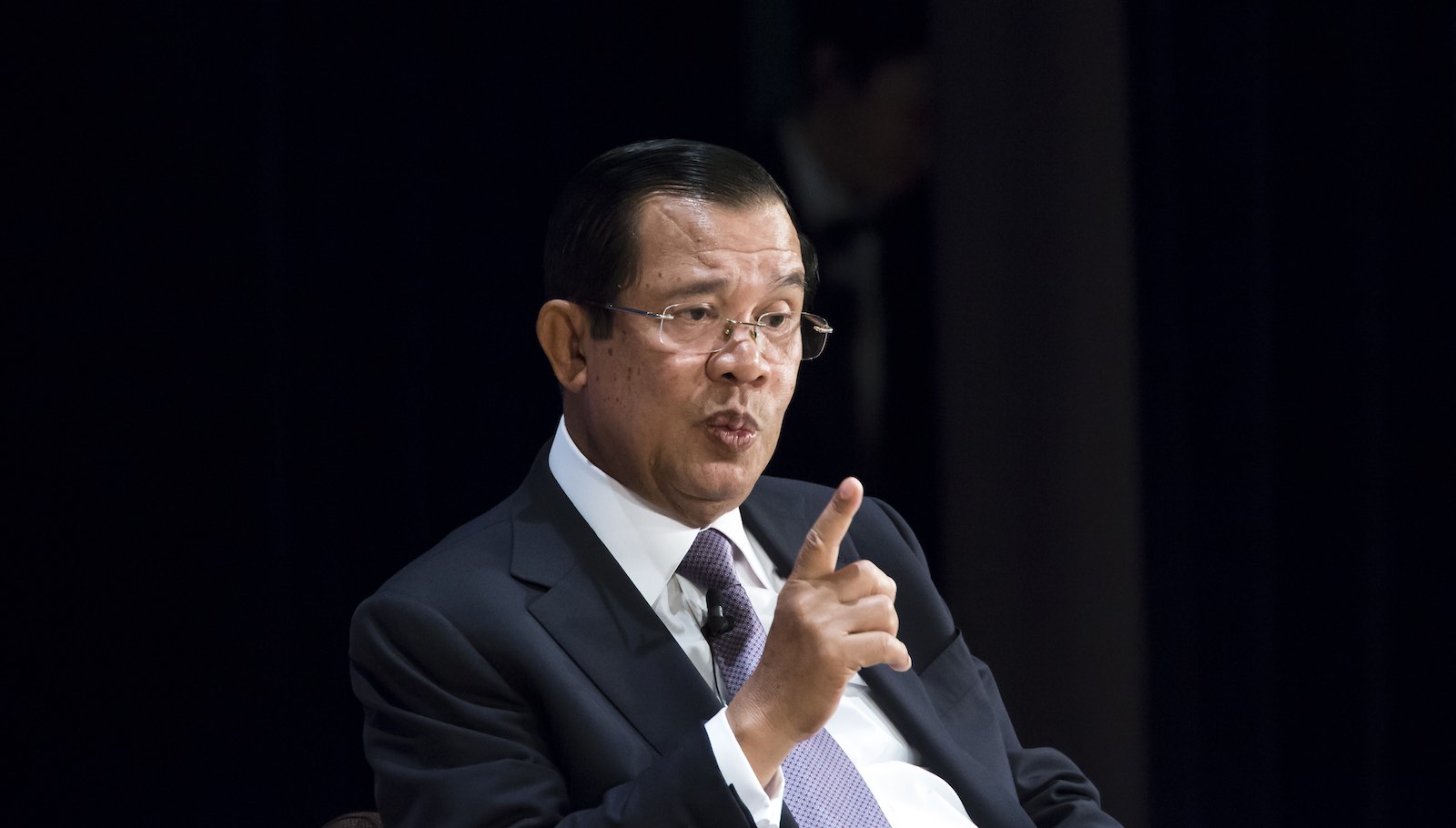Op-Ed: Cambodia: Playing
the long game
against Hun Sen
European Union pressure
is working, and revoking
trade preferences might
allow Cambodians to
escape dynastic rule.

Cambodian Prime Minister Hun Sen at the Future of Asia Conference, Tokyo, 30 May 2019 (Photo: Tomohiro Ohsumi/Getty Images) Published 26 Nov 2019 12:30
To the casual observer, it may appear that Cambodian strongman Hun Sen is letting up, undoing some recent repression. This month, Hun Sen released Kem Sokha, the founder and co-leader of the main opposition party, after more than two years of house arrest, days later also ordering the release of more than 70 opposition activists arrested for “plotting to overthrow the government”.
These moderate relaxations are a direct response to European Union pressure, despite ruling party rhetoric suggesting the opposite. Since February 2019, the EU, citing “a deterioration of democracy [and] respect for human rights”, has been moving towards revoking Cambodia’s membership in the Everything But Arms (EBA) trade scheme, which allows the duty-free export of certain goods – textiles, footwear, and agricultural products – to Europe. The bloc will issue its final decision in February 2020. Cambodia, if removed, will experience what one analysis described as “a decline that could send the sector into free-fall and impact on the livelihoods of millions of Cambodians.” Meanwhile, the US Senate is considering a bill that would revoke Cambodia’s membership in Washington’s own preferential trade scheme.
Elders generally credit
Hun Sen with delivering
Cambodia from the
Khmer Rouge period,
but young people do
not feel as if they owe
him anything, instead
blaming him for the
state of the economy,
along with lagging
development and corruption.
Hun Sen is a skilled maneuverer, doing just enough over the years to satisfy the West, which in turn helps prop up Cambodia’s economy, imbuing him with some much-needed legitimacy. He has a long history of making short-term concessions, only to roll them back soon after, rather than implement any real change. This is perhaps best evidenced by his cynical treatment of Sokha, who despite being “free” is still banned from politics, and set to be put on trial for treason.
Western efforts have yet to bring about the peaceful, inclusive, and democratic Cambodia promised by the 1991 Paris Peace Accords. The US and Europe have struggled to counter Hun Sen effectively, instead seeking his cooperation on issues of mutual concern, hoping to keep Cambodia at least vaguely in the Western sphere of influence. But now, with Cambodia a codified one-party state deeply in China’s pocket – and Hun Sen lashing out against the EU – the West needs a new future-focused strategy, one that holds the Cambodian government accountable for human rights violations and other breaches. As a first step, Brussels and Washington should revoke their respective preferential trade statuses for Cambodia.
Continue reading